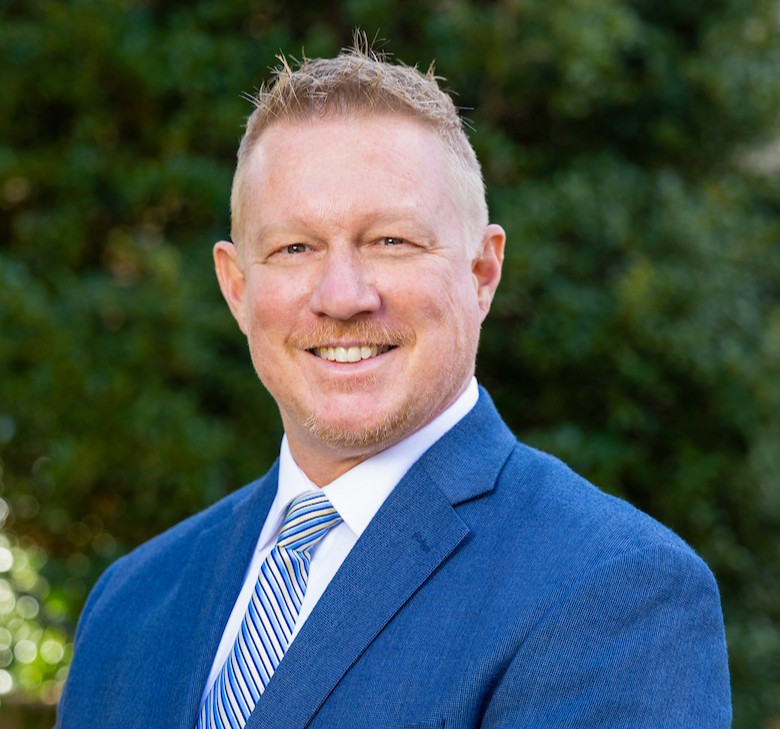Bridging Policy and Community: Kirk Boone’s Mission to Support Western NC After Hurricane Helene
In the aftermath of Hurricane Helene's unprecedented devastation in September 2024, western North Carolina faced challenges that tested the resilience and expertise of its communities. Among those deeply invested in the region's recovery was Teaching Associate Professor of Public Finance and Government Kirk Boone.
As a seasoned tax professional and a certified appraiser endorsed by the North Carolina Association of Assessing Officers (NCAAO), Boone's career spans over thirty years, during which he gained a reputation for meticulous analysis and a deep understanding of property tax regulations. His professional relationships range from individual taxpayers to large organizations, including the North Carolina Department of Revenue.
Stepping Up in a Time of Crisis
When Hurricane Helene struck, it unleashed catastrophic flooding and widespread destruction across western North Carolina, particularly in areas such as Chimney Rock and Spruce Pine. “I’m from that area,” Boone said. “That’s my home.” The storm's impact was profound, with entire communities destroyed and many residents in dire need of resources. The magnitude of the disaster prompted immediate response from the public, including professionals from neighboring communities.
County tax assessors were among the many under-resourced groups, yet they played a crucial part in disaster recovery in the wake of Hurricane Helene. By law, the assessor’s office must maintain property data and assess each property's physical damage and level of construction completed as of January 1 of each year, even after a disaster occurs and their own homes and families have been impacted. On top of this, many property tax assessors are tasked with estimating damages for purposes unrelated to property taxes.
Boone recognized that beyond the immediate humanitarian relief, there was a pressing need for guidance to help tax assessors who had never experienced disaster property assessments navigate the aftermath of Hurricane Helene. “I made it a point to speak with the tax assessor in each county to make sure they were ok,” Boone said. “[After regrouping, we realized] some of the affected counties had little to no experience with the damage assessment process.”
With support from the UNC School of Government, collaboration with the NCAAO, and insights from experienced tax assessors in Onslow, Craven, Dare, and Ashe counties, a comprehensive damage assessment training was developed for North Carolina tax assessors. Boone, alongside the tax assessor experts, led a nearly two-hour session at the NCAAO Fall Conference in Greensboro. The training was recorded by Audio and Video Production Specialist Paul Bonner and later published on Boone’s Public Finance Blog, Death & Taxes, as a lasting resource for assessors across the state.
“We want to make sure that assessors never feel like they’re alone or don't know what to do in this difficult situation,” Boone said. “As an assessor, knowing your resources is key. Organizations like the School of Government, North Carolina Association of Assessing Officers (NCAAO), North Carolina Association of County Commissioners (NCACC), North Carolina City and County Management Association (NCCCMA), and the North Carolina Department of Revenue (NCDOR) are those core resources.”
Beyond these efforts, Boone worked with the Executive Director of NCCCMA, Rob Shepherd, to administer information about how the assessor’s office can provide expertise on the damage assessment process.
Looking Ahead
As western North Carolina continues its journey toward recovery, professionals like Boone and his colleagues carry on the crucial role of combining expertise and public service to overcome adversity. These contributions have not only helped provide relief to those affected by Hurricane Helene but also contributed to a more resilient and informed community that is better equipped to handle disasters.
To learn more about Kirk Boone, visit Kirk Boone | UNC School of Government. Visit UNC School of Government to learn more and access resources.
Published April 11, 2025.



